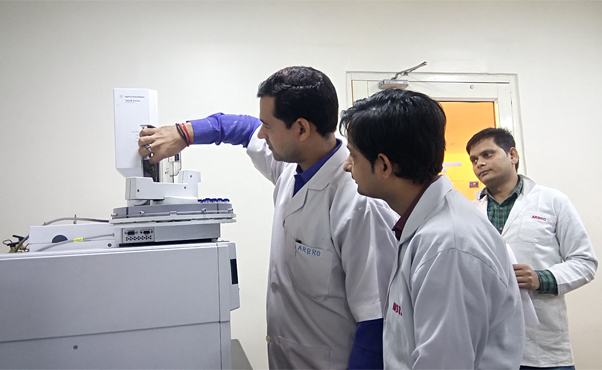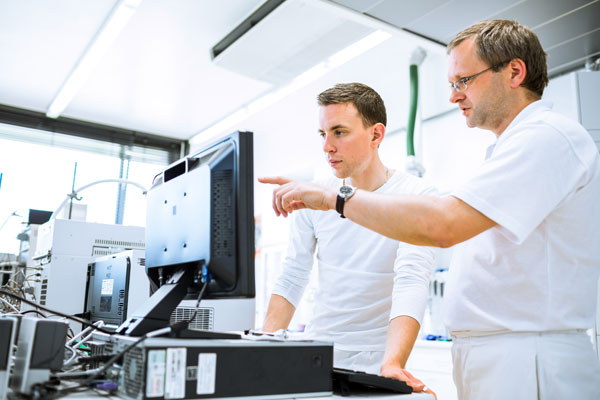Suggested approach for imparting training on advanced analytical techniques


Today advanced analytical techniques have established themselves firmly in modern laboratories across the world. As a university student you would have become familiar with such techniques and their capabilities but maybe you never had an opportunity to visit a state of art laboratory housing such facilities. It is but natural that on your first exposure you might have been stupefied by the sheer complexity of advanced analytical systems and would have wondered how you will understand or even operate such complex systems.
The present article suggests a systematic approach that can be adopted by the experienced operators who are responsible for training the new entrants in the laboratory. It is very easy and convenient for the trainer to simply list out the operational commands, demonstrate the operation and consider that his role is over. However, his role is over only when he has made you feel comfortable through an understanding of the principles of the technique, application areas and instilled the required confidence. The proposed approach suggested below will help the trainer achieve the desired objectives
System Capabilities
The new entrant may or may not have a rudimentary knowledge about the technique. First of all assess his or her level of knowledge and understanding of concepts. After clearing the basics discuss the application areas. Talk about the detection limits achievable for some typical class of compounds and the benefits of speed and sensitivity that can be achieved in comparison with conventional classical techniques.
Introduction to System Component Parts
Now comes the stage which will help demystify the complex system into easily comprehensible component parts. Break up the main system into its component parts and briefly explain the role of each component part and its significance in achieving the desired sensitivity and precision of results. This simple introduction will prompt the entrant to learn more on basics on his own and is essential for a better grasp on system capabilities.
System Operation
The entrant is now ready to pick up the operation of the system. Explain in simple steps and make the entrant note down the sequence of operations. Do emphasize on control of experimental conditions such as temperature, humidity, proper sample handling and preparation. Explain the operating software capabilities for operation of the system and in setting up of operation control parameters.
Preventive Maintenance
The need for preventive maintenance should be emphasized and introduction to preventive maintenance schedule will help the trainee appreciate its importance in utilization of the system to its fullest capacity and build the confidence on results generated. The need for following the prescribed calibration procedure on regular basis also needs to be emphasized.
Troubleshooting
Troubleshooting requires more than one session and is best explained when the learner faces problems in routine day to day operation. This activity can take can take a few weeks to several months.
It is important to bear in mind that operation of an advanced analytical technique cannot be imparted in a single session or even over a workshop covering 2-3 days. The systematic approach will require a longer time and regular monitoring. However, such an approach can impart the required skill and confidence which otherwise if rushed through can become a daily drudgery for the operator. The learner will over a period of time develop confidence in you and you will gain the desired respect as a guide and mentor.





Responses